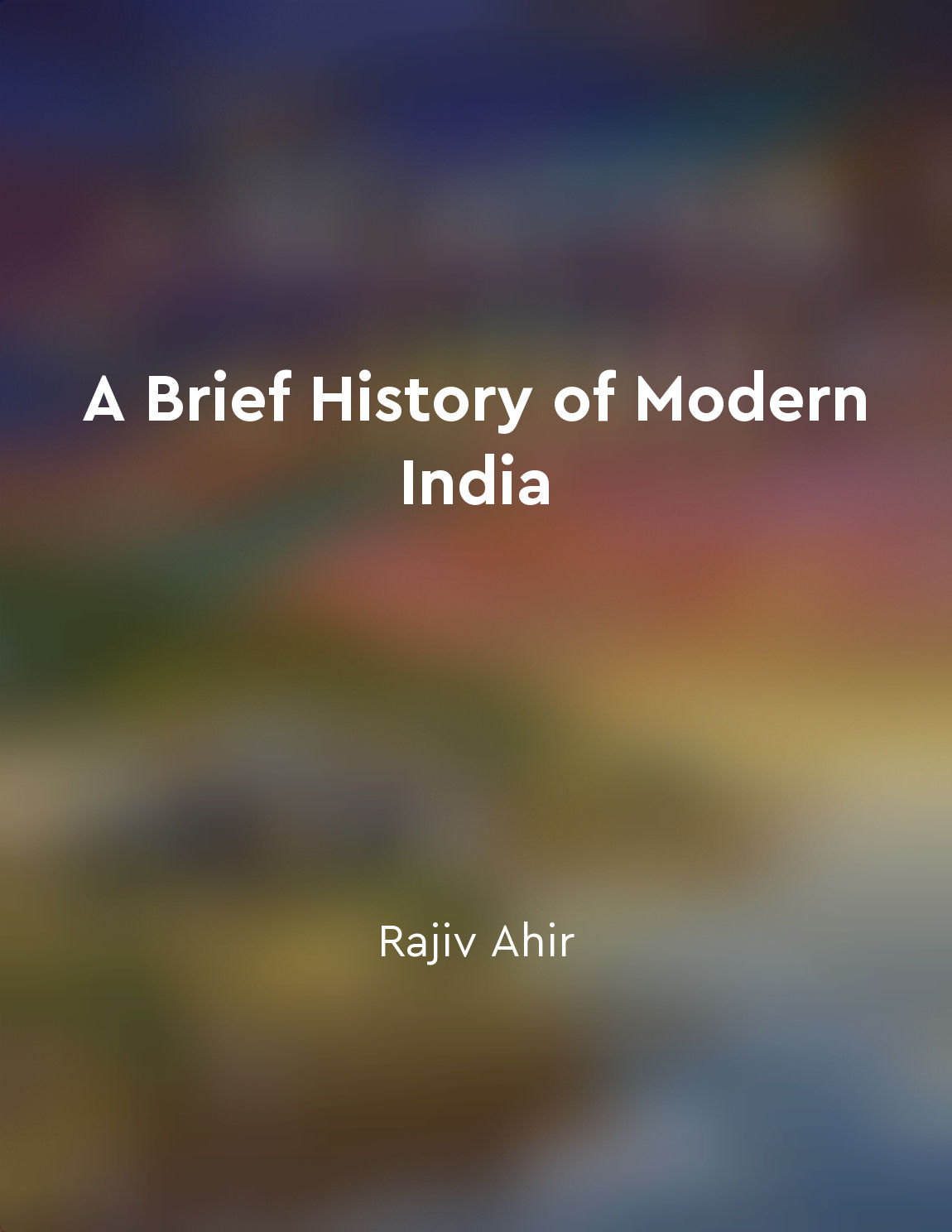Freedom struggle led to India's independence in 1947 from "summary" of India: The Ancient Past by Burjor Avari
The struggle for freedom was a long and arduous journey for the people of India, marked by various phases of resistance against British colonial rule. The early nationalist movements, such as the Indian National Congress, laid the foundation for the eventual fight for independence. Leaders like Mahatma Gandhi, Jawaharlal Nehru, and Subhas Chandra Bose played significant roles in mobilizing the masses and galvanizing the movement towards self-rule. The freedom struggle gained momentum through various means, including non-violent protests, civil disobedience, and mass movements. Gandhi's idea of non-violent resistance, or Satyagraha, became a powerful tool in the fight against British oppression. The Salt March of 1930, the Quit India Movement of 1942, and other acts of civil disobedience were pivotal moments in the struggle for independence. The sacrifices made by countless freedom fighters, who endured imprisonment, torture, and even death, symbolized the unwavering determination of the Indian people to break free from colonial shackles. The spirit of nationalism and unity that permeated throughout the country during this time was unprecedented, as people from all walks of life came together for a common cause. The British government, exhausted by World War II and facing mounting pressure from the Indian independence movement, finally conceded to granting India its independence in 1947. The partition of India and Pakistan, however, resulted in widespread violence and displacement, leaving a scar that would take years to heal. The struggle for freedom was not just a political movement; it was a social, cultural, and economic revolution that transformed the fabric of Indian society. The legacy of the freedom struggle continues to resonate in the hearts of the Indian people, serving as a reminder of the power of unity, resilience, and perseverance in the face of adversity.Similar Posts
Formation of Muslim League
The Muslim League was formed in Dhaka in 1906. It was established in response to the growing sense of alienation and fear among...
Role of Indian princely states
The Indian princely states played a crucial role in the struggle for independence. These states were ruled by Indian princes wh...
Ashoka's rule promoted the spread of Buddhism
During Ashoka's rule, Buddhism flourished in India and beyond, largely due to the emperor's patronage and promotion of the reli...
The fight for equality is a moral imperative
The concept of equality has been a subject of great importance and debate throughout history. Many have argued that the fight f...
Role of Indian princely states
The Indian princely states played a crucial role in the struggle for independence. These states were ruled by Indian princes wh...

Emergency period under Indira Gandhi
During her time as Prime Minister of India, Indira Gandhi declared a state of emergency in the country from June 25, 1975, to M...
